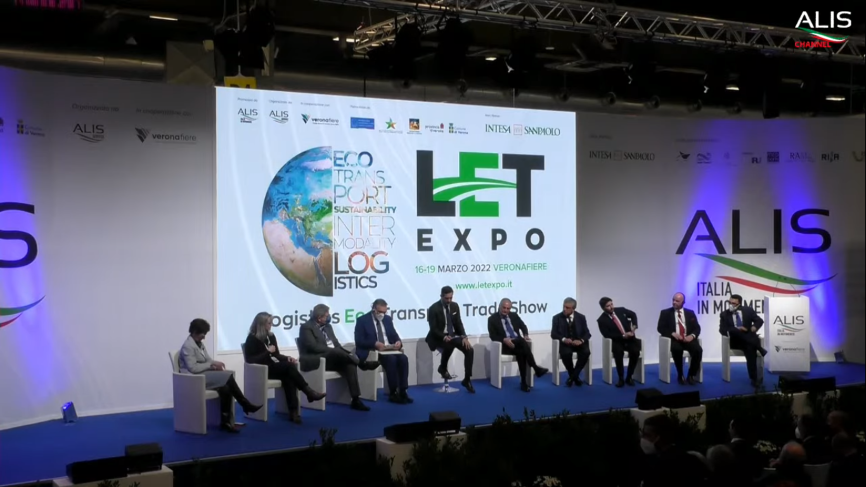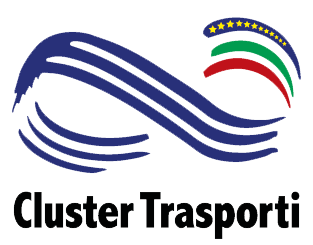Technology and incentives for intermodality: Ennio Cascetta at the LETExpo fair in Verona

Published 23 March 2022
Building an ever wider and more widespread network of incoming and outgoing connections, especially by leveraging intermodality to combine the need of responding to the increase in transport demand with the reduction of emissions and the achievement of the sustainability objectives identified by Europe.
Making the Italian and European port system ever more technologically advanced, cohesive and efficient, in order to face the challenges imposed by the crisis of the logistic chains and the constantly evolving geopolitical scenarios.
These are some of the themes at the center of the European Seaport and Shipping meeting organized as part of LETExpo, the sustainable transport and logistics fair in Verona, operating until March 19.
The meeting was attended by the representatives of some of the main Italian and European ports, along with operators of shipping companies and institutional and associative contacts.
The key words of most of the interventions were: intermodality, sustainability, digital innovation and the the ability to build ever wider networks of relationships between northern and southern Europe to support the maritime transport network, through the ports, which are also keys to the industrial development of the territories that refer to them.
For example, Pino Musolino, president of the Port of Civitavecchia, underlined the commitment that the port of Rome is carrying out to fill the infrastructural gap characterizing the territory of reference of the most important ports in Italy and which is located right in the middle of the central part of the Mediterranean. Musolino would like to see from a policy point of view a more decisive and targeted form of incentive for those who undertake to carry out infrastructural improvement interventions while keeping firmly on the principle of sustainability, for example through the award of a sustainable certification of the supply chain.
Measuring sustainability for a targeted incentive policy
Also Ennio Cascetta, president of the National Transport Cluster, in his speech focused on the theme of incentives, underlining that to obtain truly valid results, however, these must be coming from a lucid and unprejudiced evaluations. Because it is not enough the word “sustainability” but it’s necessary to understand that this sustainability must be measured. We need to get out of the “which” phase – explained Cascetta – and move towards the “how much” phase, precisely measuring sustainability in terms of gas reduction and therefore making an assessment in very clear and realistic terms of which are the best investments of the few resources available. This account must necessarily be made, also in relation to the resilience of the country system. A country like Italy has a strong dependence on rubber, it will have it forever – Cascetta reiterates – because it depends on its structure: it is the network of highways that created the skeleton around which post-war Italy was built. To cite just one significant data, 60% of Italian companies are located 10 minutes from a motorway exit. It is not possible to intervene on this state of affairs.
It is certainly possible to reduce the amount of goods traveling by road on long routes, and for example to go to northern Europe it is necessary to focus on the railway, which allows you to cross Alpine passes, where road capacity has no margins. So if we want to continue to grow in relations with Europe, and we will continue to do so – Cascetta stressed – because the market is heading towards an intensification of intra-block exchanges and a reduction in extra-block exchanges, we cannot ignore the railway, in terms of transport terrestrial. As for the trade front in the Mediterranean, there is no alternative to the Motorways of the Sea, which are of course a solution also in relations with northern Europe in the sections where there is no valid land alternative.
Italian ports must grow technologically
This mechanism can work through a system of incentives – explained Cascetta – which already exist but must be made smarter. In this sense, it is necessary to take an extra step of intelligence by focusing on the fact that we must not aim for road-to-sea competition on the same route by providing a double incentive but to focus on where it is convenient to incentivize more and why. Secondly – concluded the president of the Transport Cluster – it is important to understand that to be smart you need to be technologically advanced and our ports have a lot to work on this aspect. From this point of view, crucial for the evolution of our ports – underlined the president of Assoporti, Rodolfo Giampieri – it will be to be ready for the opportunities offered by the PNRR funds in terms of infrastructural and technological development from a sustainable perspective, a condition essential to increase competitiveness at an international level, first of all with other ports in the Mediterranean and then also with those of northern Europe. However, in order not to risk losing this historic opportunity, it will be essential to simplify procedures and break down bureaucracy.


